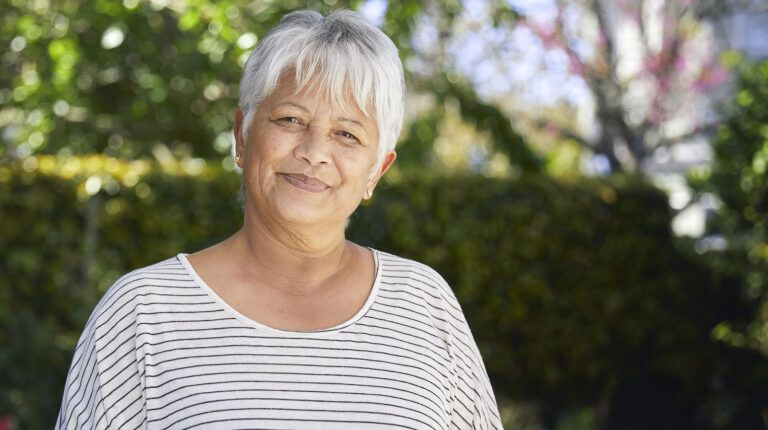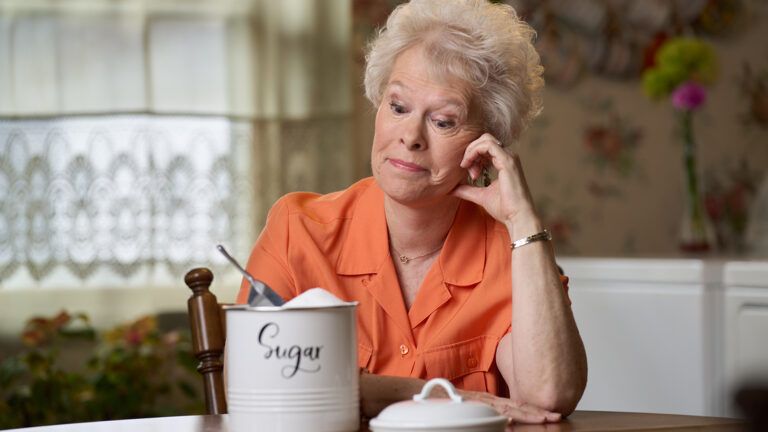“This is Emmett Diggs,” my voice mail greeting said. “Retired minister, active tennis player and happy man.” Not anymore. Not after what I’d had to do that morning.
I drove home and didn’t get out of the car right away. I sat there, wanting to pound on the steering wheel. I was so angry. Besides my wife, Patty, I had two loves in my life—boxing and tennis. And I’d been forced to give both up. I’d just told the Big Dogs, the buddies I’d played tennis with for the past 12 years, that it was time for me to quit the game.
A bitter loss at age 75. As bitter as quitting boxing at age 20.
All my life, I’d been active, athletic, competitive. My dad had been an amateur boxer, and he fixed up a gym for me in our barn. We stuffed old burlap sacks with chicken feed and sand and used them as punching bags. I competed in Golden Gloves tournaments. Never lost a fight. I loved boxing. If you got me in a corner, I liked to fight my way out. I even liked getting hit. I won the Virginia Golden Gloves welterweight championship in 1961.
I was in college at the time, serving as an intern minister. One day, the vice president of the college summoned me into his office. “I’ve gotten calls from your congregation,” he said. “Folks don’t like the fact that you’re fighting.”
The bumps and lace burns on my face must have given me away.
“You’ve got to decide,” he said. “Do you want to be a fighter or a preacher?”
I hung up my gloves. Ministry was my calling, no doubt about it. Still, I had lingering regrets about giving up boxing so young. I always wondered what I could have done in the ring. And I wondered why the Lord made me that good at something only to have it taken away.
Now tennis was gone too, because of Parkinson’s disease. I’d been diagnosed a few months earlier. Actually, the symptoms had started two and a half years before, only I didn’t realize what they were. Patty and I had moved from Virginia to Hilton Head in 2005, after I retired from ministry. She later got a job as a coordinator at the island’s volunteer medical clinic. After boxing, tennis had become my sport—I’d even taught Patty—and I knew I’d be playing a lot more now that I had the time. I got certified as a United States Professional Tennis Association teaching pro at 62. When I was in my early seventies, Patty and I captained a mixed doubles team that represented our state in the regional championship. I was on the court just about every day. I played with the Big Dogs in the morning and gave lessons in the afternoon.
I was one of the better players on the Big Dogs and proud of it. (No rules say a minister, retired or otherwise, can’t be competitive.) Over time, I noticed I couldn’t run well. Couldn’t sprint cross-court and get to balls. Though my arms worked fine, I couldn’t hit a ball if I couldn’t get to it. Guys I used to beat were keeping up with me. Pretty soon they were beating me.
The Big Dogs were my best buddies. We had each other’s backs. We talked about everything—our personal lives, family problems, medical issues. They knew I’d seen a neurologist for restless legs syndrome, where you have an uncontrollable urge to move your legs. But now I was having sort of the opposite problem, not being able to move my legs, which none of the other guys had experienced. Was age finally getting to me?
My brother and his wife came to visit for Thanksgiving. The four of us were walking around the park when he said, “Emmett, stand up straight.” I didn’t know I wasn’t. “And you’re shuffling. Can you pick up your feet?”
Patty had been saying that for years. She walks fast, and I never could keep up with her. She’d seen how speedy I was on the tennis court, so if we were in the airport and needed to hurry to our gate, she’d say with a laugh, “Just pretend you have a racket in your hand.”
This time she wasn’t laughing. “I told you you’ve been dragging your left foot,” she said.
My brother took out his cell phone and shot some video of me walking. He showed it to me. Whoa, that bent-over guy—that was me? With the feet shuffling so badly I could hear it? Still, I didn’t want to believe anything was really wrong.
It wasn’t until I started having memory issues that I told my neurologist about all my symptoms. She suspected Parkinson’s but couldn’t officially diagnose it because I didn’t meet enough clinical criteria. She put me on meds for age-related cognitive problems. That cleared up the mental fogginess.
My tennis game kept going downhill. By the time I met the diagnostic criteria for Parkinson’s disease and my neurologist was able to prescribe medication for it, I’d dropped to the bottom rung of the Big Dogs. “This will help the motor symptoms,” she said. “But it’s important that you keep active and exercise.”
The day after my first dose, I was able to run. Not like a deer, but I could play tennis again. Staying active and exercising? No problem, I thought.
That lasted a few months. Then I got so unsteady on my feet, I oftentimes felt like I was going to fall as I moved around on the court. My brain said go, but my body said no. Which was why I’d had to tell the Big Dogs my tennis days were over. “Don’t be a stranger,” they said. “Stay and watch us play.” I couldn’t. I would hate that, watching instead of competing.
Finally I got out of the car and made my way inside our house. Just do gardening instead, I told myself. I liked being out in the yard with the birds and flowers. A few months later, I was on my hands and knees, weeding a flower bed. I went to stand up—but couldn’t. Patty was at work. Our neighbors had to help me up.
About all I could do was sit on our porch and watch the birds at the feeder. Was this what my life had shrunk to? Everyone else doing things and me just sitting on the sidelines looking on?
I’d never been in a valley this deep. Lord, I don’t know how to deal with Parkinson’s, I prayed. I’m not a tennis player anymore. Not a happy man, either. What am I going to do? I had to reinvent myself. One morning Patty handed me the local paper. “Look at this article. It’s about a man with Parkinson’s who does boxing as therapy. Rock Steady Boxing, they call it.” I read the article and set it aside. Boxing takes serious footwork, and I could hardly walk in the yard without falling.
But Patty didn’t give up. She’s like that. She went to the Rock Steady Boxing website and found a gym near us that offered it. The next thing I knew, we were walking in for an assessment.
I saw all the bags hanging around the perimeter of the gym—heavy bags, light bags, speed bags—and I thought, Have I come full circle?
The program director was a big, strapping guy named John, a mixed martial arts fighter. He explained that RSB was non-contact. The hour-long classes combined elements of shadow boxing with functional fitness and strength training. We’d be stretching, hitting bags, using weights, doing push-ups, practicing footwork drills. John took me over to a heavy bag.
“Patty told me you boxed while in college,” he said. “I bet you have some muscle memory.” He gave me gloves.
I slipped them on. Just having that familiar weight and padding on my hands for the first time in more than 50 years…it felt good.
“Hit the bag,” John said.
I slowly got in my stance, my legs quivering. I hesitated. What if I lost my balance?
“C’mon, show me what you’ve got,” he urged. “Hit it!”
I brought my left arm up. Threw a jab.
The second my glove thudded against the bag, something in me came alive.
I followed with a right cross. Man, it was like I was back in my dad’s barn, sending feed dust flying with every punch! It felt great, solid, as if the bag were hitting back.
“Really good,” John said.
I couldn’t wait for the first class.
There were about a dozen people. First, John had us stretch. Then he divided us into smaller groups for bag work. We put the gloves on. “Start with jabs,” John said. I stepped up to the bag and threw a series of jabs and hooks. “Wow!” the guys in my group said. Wow was right. Here was something athletic I could actually do! Something I loved. A couple guys came up later and asked, “Can we be your partners next time?”
I went home exhausted but full of hope. Having those guys want to work out with me made me feel useful again. I kept going back to RSB, three times a week. The more I boxed, the stronger and more energized I felt. During a short break in class, I got to talking with the other participants. “How long have you been doing this?” I asked. “How did you find out you had Parkinson’s?”
Everyone’s story was different but also the same. None of us could pinpoint when the disease really started. We differed in how it affected us. One guy couldn’t button his shirt, yet he still ran smoothly. Another’s voice had gotten so soft, it was hard for folks to hear. Someone else was self-conscious about her hand tremor.
Soon we were sharing on a more personal level. Talking about how depressing it was not to be able to do what we used to. The frustrations of having to depend on others to help us. The RSB group understood what I was going through because they were going through it too.
“I really enjoy coming here,” I said to a guy the other day. “It’s helped me deal with my anger.”
He nodded knowingly.
“Do you get angry about having Parkinson’s?” I asked.
“I’ve never not been angry,” he said. He paused, then added, “But I’m getting used to Parkinson’s. This is what my life is, and I’ve got to live it.”
I wasn’t expecting to get a spiritual insight about acceptance, but I definitely needed it.
I had thought Parkinson’s disease was going to take away everything that mattered to me. I should’ve known the good Lord wouldn’t let that happen. Thanks to his persistent helper Patty, he brought my first love back into my life in a way I never could have imagined. Boxing has given me not only a fun way to stay active and fight Parkinson’s but also a new group of guys who are in my corner, just as I’m in theirs.
I think I need to change my voice mail greeting to “This is Emmett Diggs. Retired minister, boxer and happy man.”
For more inspiring stories, subscribe to Guideposts magazine.






